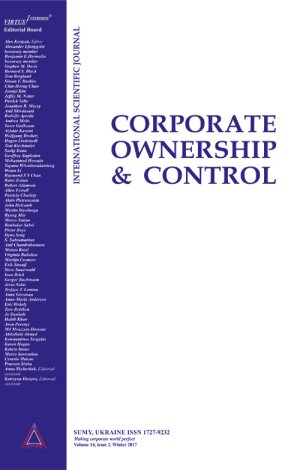
-
 Journal menu
Journal menu

- General information
- Editorial Board and External Reviewers
- Journal Policies
- Publication Ethics and Malpractice Statement
- Instructions for authors
- Paper reviewing
- Article processing charge
- Feedback from stakeholders
- Journal’s Open Access statement
- Order hard copies of the journal
- 50 most cited papers in the journal
THE PROBLEM OF INCENTIVES IN BUILDING CORPORATE GOVERNANCE MODELS
Download This ArticleAbstract
The attempt to align interests of executives with those of shareholders has been addressed in the corporate governance context from a predominantly economic outlook based on the agency theory. The models that combine monitoring and control systems in association with financial incentive mechanisms, such as profit and income sharing, stock options, bonds and other benefits, consider an individual to be individualist, opportunist and self-interested, diverging from the assumptions of other theories and contemporary ideas in the area of human resources management. Based on the criticism related to the agency theory, particularly when drawing up incentive schemes, this article aims to look at alternative theories to build corporate governance practices that include considerations on extrinsic and intrinsic motivation of agents.
Keywords: Corporate Governance, Agency Costs, Stock Options
How to cite this paper: Fontes-Filho, J. R. F., Balassiano, M. (2008). The problem of incentives in building corporate governance models. Corporate Ownership & Control, 5(2-3), 352-359. https://doi.org/10.22495/cocv5i2c3p4

















